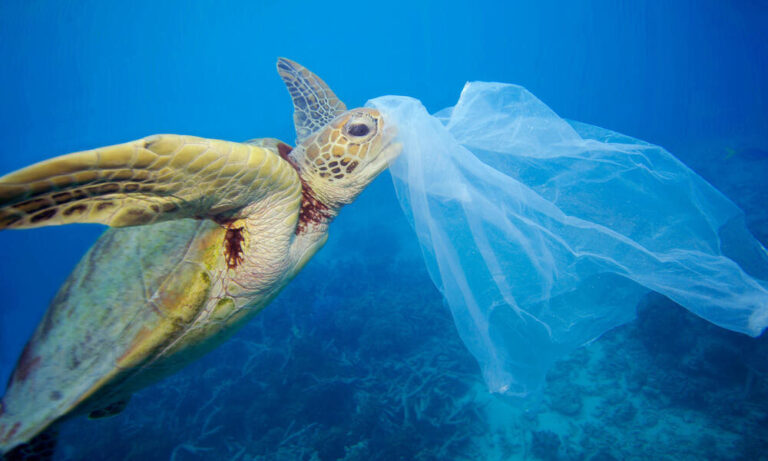
Plastic Pollution: A Growing Threat to Our Oceans and Wildlife
Plastic pollution is one of the biggest environmental threats facing our planet today. From the vast garbage patches floating in our oceans to the microplastics that are making their way into our food chain, the impact of plastic on our environment is far-reaching and growing. The good news is that there are many initiatives and solutions aimed at reducing plastic pollution and minimizing our own plastic use. In this article, we’ll take a closer look at these efforts and explore the steps we can all take to make a difference.
The plastic pollution crisis has been building for decades, but it has only recently come to the forefront of public awareness. According to the Ocean Conservancy, plastic is the most common type of marine litter, accounting for 80-90% of all marine debris. This plastic pollution is not only unsightly, but it’s also incredibly dangerous to wildlife. Turtles and whales are known to ingest plastic bags, mistaking them for jellyfish, while sea birds are known to feed plastic fragments to their young.
One of the biggest causes of plastic pollution is single-use plastics, such as shopping bags, water bottles, and takeaway containers. These items are used once and then discarded, often ending up in our oceans. To combat this problem, many countries have introduced plastic bag bans and levies, while others have set targets for reducing the use of single-use plastics. In Australia, for example, the government has set a target to reduce plastic pollution by 70% by 2025.
Another major contributor to plastic pollution is the lack of effective waste management systems in many countries. In developing nations, plastic waste is often discarded in landfills or burned, releasing toxic chemicals into the environment. To tackle this problem, international organizations are working with local communities to implement better waste management systems and to educate people about the dangers of plastic pollution.
One of the most promising developments in the fight against plastic pollution is the growth of renewable alternatives to plastic. Biodegradable plastics, made from plant materials, are now widely available and can be used in place of traditional petroleum-based plastics. Additionally, companies are developing new packaging materials that are more sustainable, such as paper-based packaging, compostable plastics, and materials made from recycled content.
Another way to reduce plastic pollution is to minimize our own use of plastic. This can be achieved by making simple changes to our daily habits, such as switching from single-use plastic water bottles to reusable bottles, using cloth bags instead of plastic shopping bags, and avoiding takeaway food containers and cutlery. By reducing our own plastic use, we can reduce the demand for plastic and help to curb the plastic pollution crisis.
Finally, it’s important to support organizations and initiatives that are working to reduce plastic pollution. This can include supporting local beach cleanups, donating to organizations that are working to reduce plastic waste, and advocating for stronger policies and regulations to curb plastic pollution.
In conclusion, plastic pollution is a growing threat to our oceans and wildlife, but there are many initiatives and solutions aimed at reducing this problem. From reducing our own plastic use to supporting organizations and initiatives that are working to reduce plastic waste, there are many ways that we can all help to make a difference. The transition to a more sustainable future starts with each and every one of us, so let’s make the most of the opportunities that are available to us and work together to create a cleaner, greener world.
Written By
Garret Nathan
Founder
The Better Days Foundation
